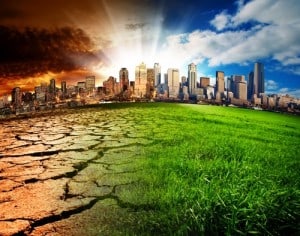Climate change negotiations and agreements could be more focused and aligned using an artificial intelligence model based on real-world data.
Governments, organizations and other bodies have committed over the past decade to reducing or, in some cases, reaching net zero emissions over the next 10 to 50 years, with the aim of avoiding the worst climate change predictions.
Since there is no single entity responsible for these emission reduction agreements, policy objectives may be misaligned or incompatible with the economic structure of a country or organization, which can lead to misleading final results.
SEE ALSO: Dealing with artificial intelligence unknowns for success
The AI for global climate cooperationfounded and funded by Salesforce and university research center Mila Quebec, aims to improve climate change negotiations and agreements using a machine learning climate-economic simulator.
This machine learning simulator, named RICE-N, takes into consideration real-world data on investment, mitigation, international trade, tariffs, negotiation and agreement, among other data points. Thanks to it, politicians and decision-makers can make more informed choices about how to tackle the climate crisis.
The collaborative group is looking for people from many disciplines, including AI researchers, economists, climatologists and behavioral scientists, to help implement the model. It is also seeking experts in ethics, law and policy to help shape the analysis and communication of AI model results.
“We plan to form a diverse working group with interested competition participants — in particular, teams whose findings are of sufficient scientific or policy novelty,” said Stephan Zheng, principal scientist at Salesforce Research. “The working group will write a research paper based on the results of the competition. This work will be submitted to a peer-reviewed journal and will undergo rigorous scientific and ethical review. Following this, given the appropriate outcomes, we intend to draft a guidance note with actionable information for policy makers, which will be distributed and promoted through our partners. We also plan to organize a marketing campaign around the results of the contest.
The deployment of artificial intelligence for climate change has been pushed hard in some circles, with 87% of climate and AI leaders believing it is essential in the fight against climate change in a report by AI for the Planet Alliance, in collaboration with Boston Consulting Group. However, in the same report, only 40% of respondents could consider deploying AI in their own field to reduce climate change.
This speaks to a technical difficulty across governments and industries, as AI is seen as a sophisticated tool that may be useful somewhere, but is not seen as useful by policy makers for their own domain. of expertise. Without collaboration between engineers, researchers, and other AI representatives and decision makers, this knowledge gap will continue to be apparent.


![The Book of AI Fabrics: Identify and prioritize areas where AI can help you optimize your business [Download Now]](https://no-cache.hubspot.com/cta/default/8019034/f1dbc717-8701-426c-9d61-726ef690003e.png)


